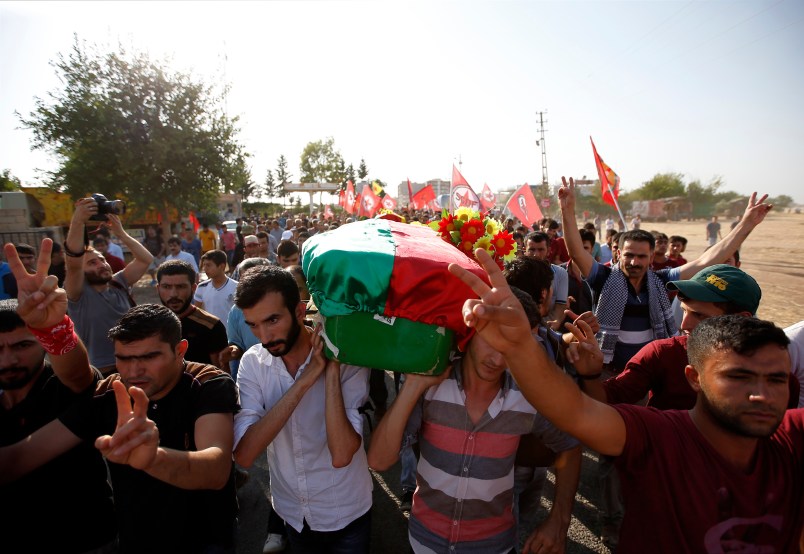ISTANBUL (AP) — Turkey briefly blocked access to Twitter on Wednesday to prevent images of Monday’s deadly bombing from being broadcast and to stop Twitter users from calling for protests against the government, which they blamed for not doing enough to prevent the attack, the state-run Anadolu Agency reported.
Access was restored a few hours later. A government official said Turkey had asked Twitter to remove 107 URLs with images of the aftermath of the bombing Monday in southeast Turkey, which killed 32 people and wounded scores. Twitter had removed about 50 of the URLs before it was blocked.
The Turkish government official said access to Twitter was restored after the company “removed malicious content, including hate speech, in line with the court order.” The official spoke on condition of anonymity because of rules that bar officials from speaking to journalists without authorization.
A court in Suruc earlier Wednesday had issued a ban on the publication of images related to the bombing in the media, including the Internet and social media platforms, and ruled that access be barred to Internet sites that do not comply with the ban, Anadolu reported.
Turkish officials had raised concerns that the bombing Monday in the border town of Suruc is part of a retaliation campaign by the Islamic State group for the government’s crackdown on its operations in Turkey.
Turkish officials say they have detained more than 500 people suspected of working with IS in the last six months — including an operation this month that netted 21 suspects in an investigation of IS recruitment networks in Turkey.
Protests have erupted in Istanbul and other cities since the bombing Monday, with demonstrators blaming the government for the attack. On Tuesday, police detained a group of people before they could march to a local ruling party office in Istanbul. Protesters also threw fireworks as police officers attempted to disperse the crowd at a separate protest in Istanbul.
Turkey has periodically blocked social media. The government ordered a temporary block on Twitter and YouTube earlier this year during a hostage crisis in an Istanbul courthouse. Those sites were also blocked last year after audio recordings of a secret Turkish security meeting suggesting corruption by government officials were leaked on social media. Turkey’s highest court, however, overturned those bans, deeming them to be unconstitutional.
Previous moves by Turkish authorities to block the social media networks have provoked widespread criticism by Western governments and human rights organizations.
Authorities confirmed, meanwhile, that Monday’s attack was a suicide bombing and identified the bomber as Seyh Abdurrahman Alagoz, a Turkish national. Anadolu said Alagoz’ older brother ran a now closed-down tea house where IS was believed to have recruited followers. The two brothers had been reported missing for the past two months, it said.
__
Fraser reported from Ankara, Turkey.
__
Follow Butler and Fraser at https://twitter.com/desmondbutler and https://twitter.com/suzanfraser
Copyright 2015 The Associated Press. All rights reserved. This material may not be published, broadcast, rewritten or redistributed.







Pro tip: Blocking social media is something like swatting a wasp’s nest because one wasp is buzzing around you.
And Turkey wonders why the EU just isn’t that fond of them anymore. As much use as they’ve been since the collapse of Iraq, hell given it’s who history vis-a-vis ethnic minorities, I’d say it’s time they were let go of their NATO “obligations” as well.